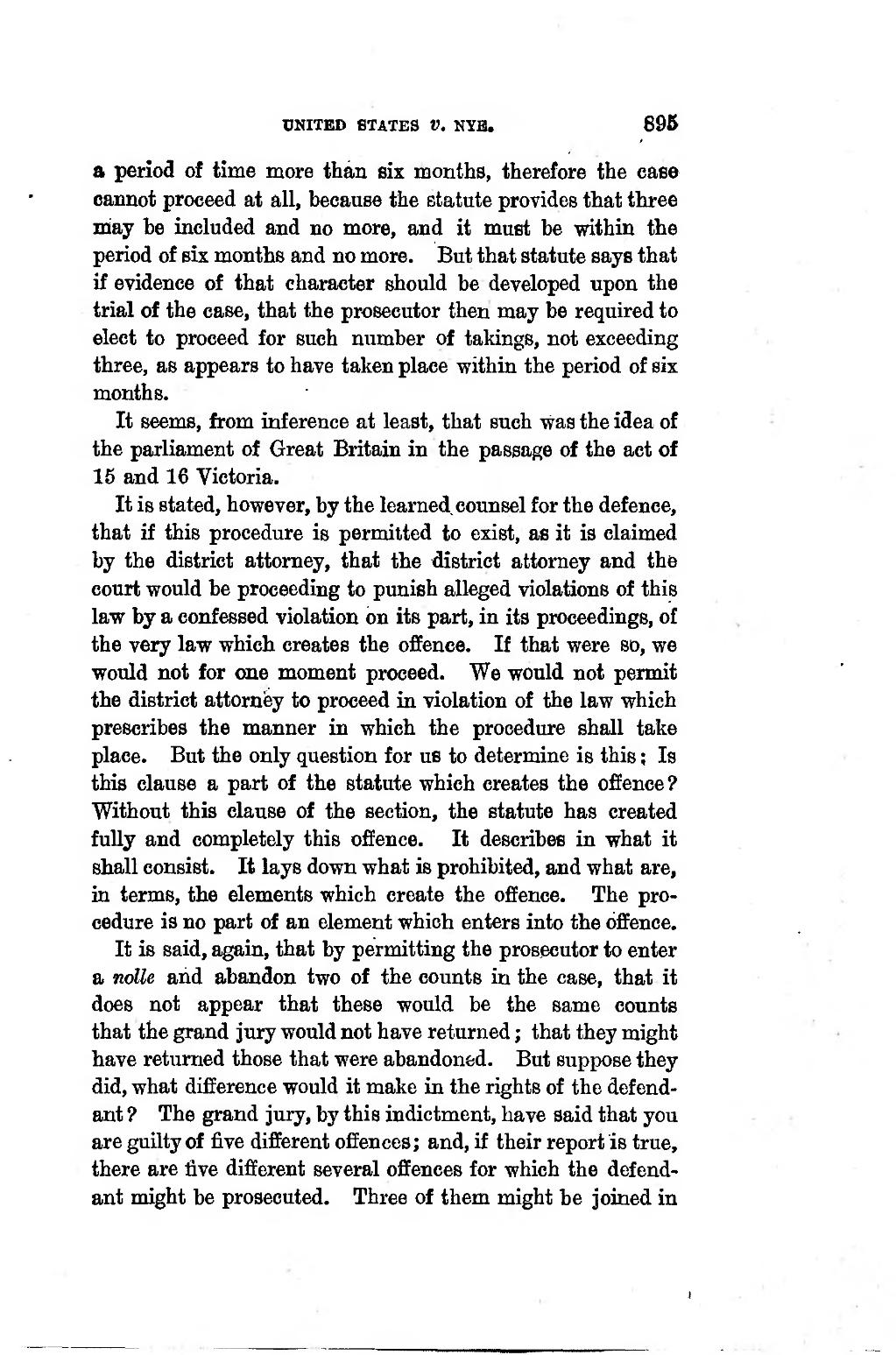UNITED STATES V. NYB. 896 �a perîod of time more than six months, therefore the case cannot proceed at ail, because the statute provides that three may be included and no more, and it must be within the period of six months and no more. But that statute says that if evidence of that character should be developed upon the trial of the case, that the prosecutor then may be required to elect to proceed for such number of takings, not exceeding three, as appears to have taken place within the period of six months. �It seems, from inference at least, that such was the idea of the parliament of Great Britain in the passage of the aet of 15 and 16 Victoria. �It is stated, however, by the learned counsel for the defence, that if this procedure is permitted to exist, as it is claimed by the district attorney, that the district attorney and the court would be proceeding to punish alleged violations of this law by a conf essed violation on its part, in its proceedings, of the very law which creates the offence. If that were so, we would not for one moment proceed. We would not permit the district attorney to proceed in violation of the law which prescribes the manner in which the procedure shall take place. But the only question for us to determine is this ; Is this clause a part of the statute which creates the offence? Without this clause of the section, the statute has created fuUy and completely this offence. It describes in what it shall consist. It lays down what is prohibited, and what are, in terms, the elements which create the offence. The pro- cedure is no part of an element which enters into the offence. �It is said, again, that by permitting the prosecutor to enter a nolle and abandon two of the counts in the case, that it does not appear that these would be the same counts that the grand jury would not have returned ; that they might have returned those that were abandoned. But suppose they did, what difference would it make in the rights of the defend- ant ? The grand jury, by this indictment, have said that you are guilty of five different offences; and, if their report is true, there are ûve different several offences for which the defend- ant might be prosecuted. Three of them might be joined in ����
